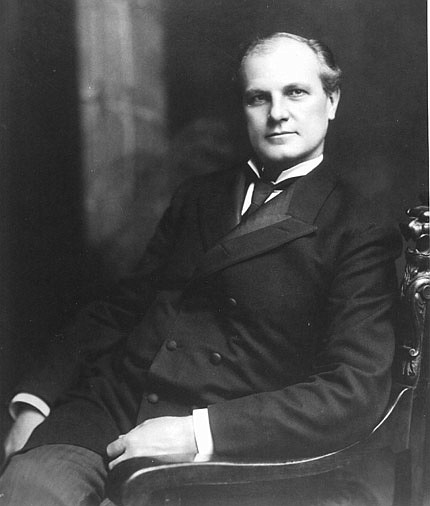(Editor's note: Second of two parts)
It was January 1903 and the Tennessee State Capitol was festooned for the inauguration of Tennessee's 29th governor, James B. Frazier of Chattanooga. The new governor's inaugural address was reprinted in every Tennessee newspaper.
The Jan. 21 Knoxville Journal and Tribune reported, "The inauguration of Governor James B. Frazier was probably the most elaborate in the recent history of the state.
There was more of ceremony and more of enthusiasm than has been displayed on such occasions of late years. It was not the pomp and parade that might have characterized a royal function, but a demonstration entirely in keeping with the democratic character of the occasion."
The comparison would seem somewhat prophetic when the following day brought the news that Queen Victoria had died after almost 64 years as the monarch of the British Empire.
Newspapers described the hall of the Tennessee House of Representatives as "tastefully decorated," noting the "profusion of bunting ... festoons of evergreens, palms, potted plants and flowers in abundance." As Frazier entered the building for the ceremony, he appeared startled when the band began to play "Hail to the Chief" but responded graciously to the "enthusiastic applause that demonstrated the great popularity of the new executive."
Following the swearing-in ceremony, Frazier addressed the Tennessee General Assembly, the Supreme Court justices and the citizens in attendance, his comments revealing his desire to work closely with the other two branches of government. Reflecting on the difficulty of serving Tennessee at the beginning of a new century and the "weakness" of his own powers, he confessed that he "would shrink from them in despair, did not the presence here of those, clothed under the constitution with the conduct of the judicial and legislative departments of the government, remind me that, in them, I shall find wisdom to aid and strength to uphold me in every laudable purpose." In the course of his speech, he identified his goals: to preserve tranquility, maintain justice, ensure economy and promote prosperity.
In a moment of thoughtful reminiscence, the governor reminded his audience that life had not always been easy for Tennesseans, but they had persevered.
"The problem which faced the sturdy pioneers of our state was one of civilization and construction ... their duty was to penetrate the darkness, to subdue the forest, to civilize the land and construct a free state." The 20th century required a new focus, and Frazier believed that free public education was necessary for the accomplishment of all other goals. His eloquence brought the crowd to its feet with thunderous applause.
"In a republic, deriving its powers from the consent of the people," he said, "an intelligent electorate is not only the sole guaranty of the just preservation of the rights of men ... man's power and capacity as a wealth producer is multiplied in direct proportion to his education and training."
Frazier's championing education marked a departure from previous state policy. Before his election, the state had historically made only a small "school fund" available annually since education was deemed to be the responsibility of the counties. Instead, Frazier spoke to the General Assembly, asserting that education should be a duty of the state, and the executive staff assisted in the drafting of a revenue bill that would "more appropriately support the public schools of the state." It passed both houses, and the governor signed it in a small ceremony.
While Frazier supported an increase in educational spending, he was generally conservative in the use of state revenues. He refused to increase staff; instead he emphasized productivity and efficiency. When the legislature passed a bill increasing the salaries of public officers -- including his own -- he promptly vetoed it.
The popular governor was easily re-elected in 1904 and served until March 1905 when the legislature nominated him by acclamation to the U.S. Senate to replace Sen. William B. Bate, who had died unexpectedly. On March 21, he was elected by the Tennessee General Assembly. During his final days as governor, he would point with great pride to the fact that he had reduced the state debt by almost $2.5 million.
Frazier would serve in Washington, D.C., from March 1905 until March 1911, then returning to Chattanooga and life as a private citizen -- and nationally acclaimed speaker -- until his death in 1937.
Linda Moss Mines, the Chattanooga-Hamilton County historian, is honorary regent, Chief John Ross Chapter, NSDAR. Go to chattahistoricalassoc.org for more information.
